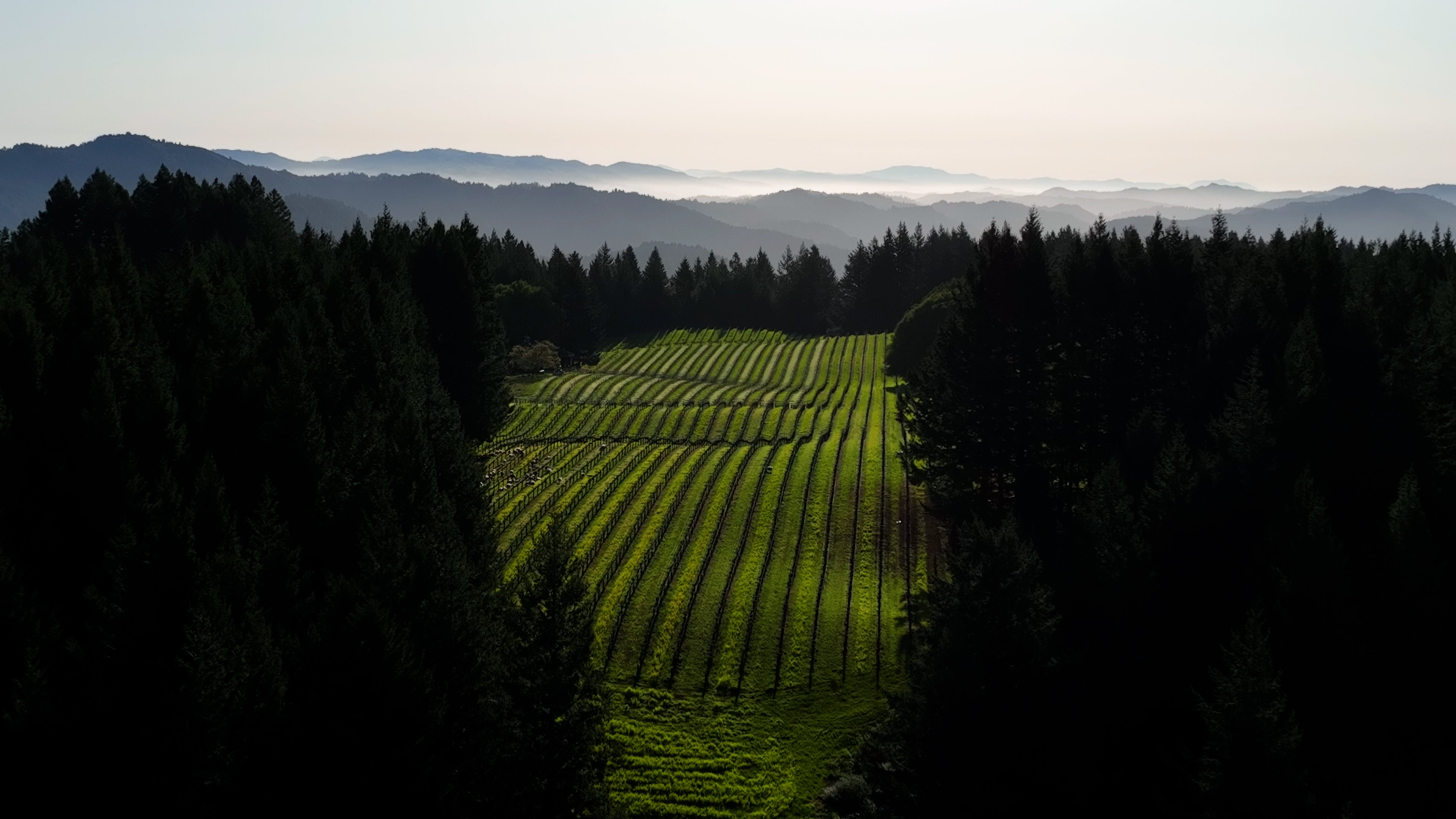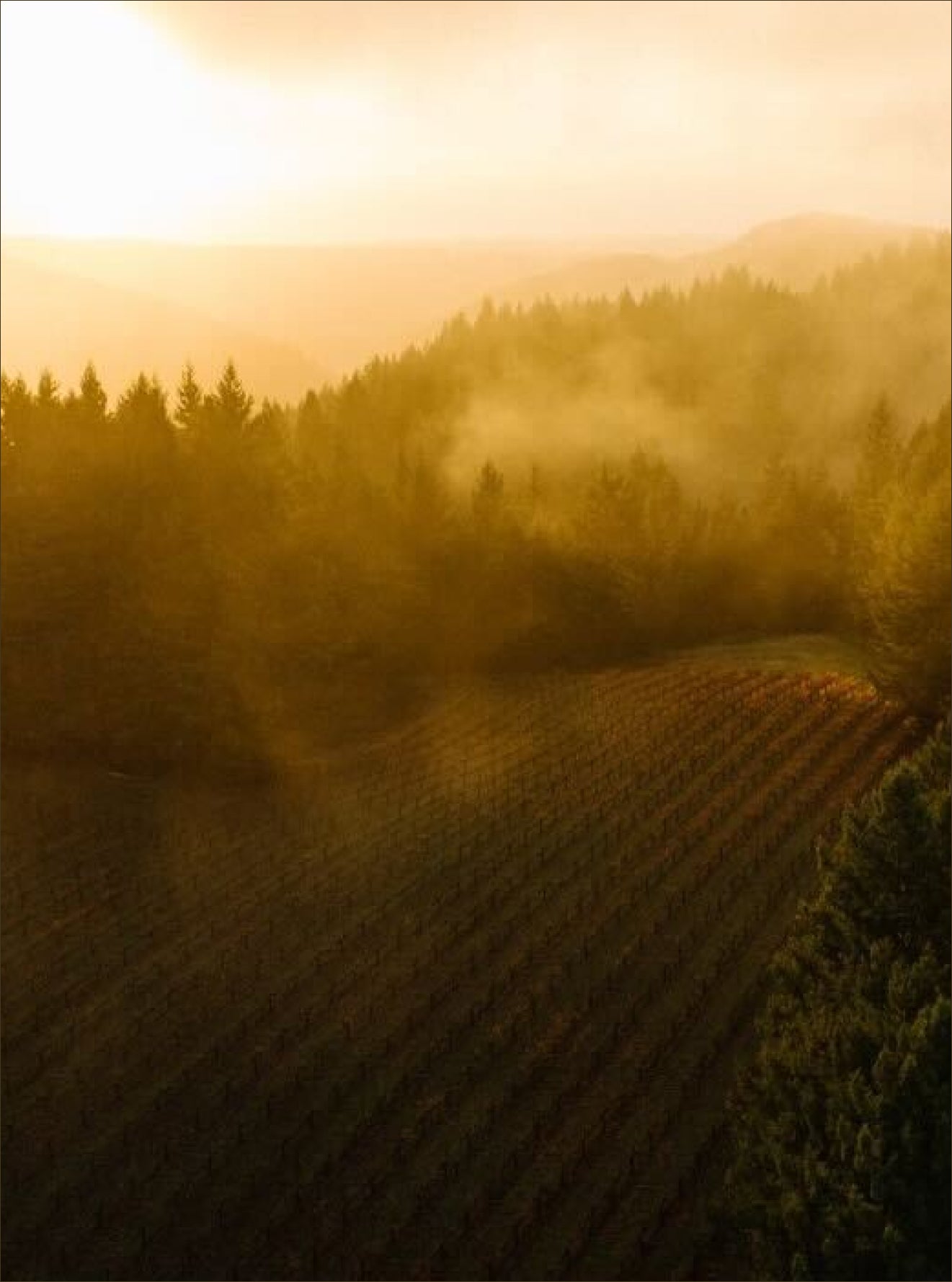You know what’s in your food, but do you know what’s in your glass?
You know what’s in your food, but do you know what’s in your glass?

It was an early morning at the end of July of 2018, and the heat was already unbearable, with temperatures promising to climb even higher. California’s North Coast had just recorded its hottest month in history. This “new normal” — punctuated by droughts, atmospheric rivers, and wildfires — is reshaping the wine industry, impacting both the bottom line and grape quality. Yet, amidst this unrelenting heat, dry-farmed, Mariah Vineyards stood out: lush, balanced, and teeming with life. It wasn’t struggling; it was thriving. The difference? A biodiverse, resilient ecosystem built on regenerative outcomes.
The Regenerative Catalyst
I still remember an early lunch that same year, 2019, with our late friend and mentor Paul Dolan. Paul, a pioneer in sustainable, organic, and biodynamic viticulture and former president of Fetzer, spoke passionately about the potential of regenerative agriculture. He described its ability to revitalize ecosystems, build climate resilience, sequester carbon, and boost biodiversity — all while producing nutrient-dense, flavorful crops. That conversation lit a spark that changed our life.
Soon after, my wife Nicole and I returned to Nicole’s parents vineyard, Mariah Vineyards, driven by a singular mission: to grow clean, expressive, nature-positive wine that Directly Impacts Regenerative Transformation. The journey hasn’t been easy, but it has been deeply rewarding. With every challenge, we’ve found opportunities to innovate and grow. And with every success, we’ve seen the transformative power of regenerative viticulture.
We started by further diversifying our cover crops and switching to 100% no-till farming, preserving soil cover year-round. We integrated livestock into our operations and planted pollinator habitats throughout the vineyard, breaking up the monotony of monocrops. Partnering with the Savory Institute, we became a pilot site for their Ecological Outcome Verification program. By embracing holistic land management and meticulously tracking metrics like soil health, biodiversity, and water cycles, we’ve created a vineyard that not only survives but thrives in extreme conditions.
The results have been remarkable. In the face of yet another record-breaking, hot summer in 2024, the vineyard still stands resilient against climate stressors, and our grape quality has reached new heights. But beyond the vineyard, we’ve realized that wine can be so much more than a beverage. It can be a force for change.

Reimagining the Power of Wine
Wine has always been unique. It’s an agricultural product steeped in history and tradition, deeply woven into cultures worldwide. It brings us together to celebrate milestones, connect around tables, and create lasting memories. But wine also holds a powerful platform: it’s discussed in magazines, TV shows, podcasts, and blogs; it’s studied by sommeliers, reviewed by critics, and celebrated by enthusiasts who care about the terroir, the winemaking process, and the stories behind every bottle.
What if we harnessed this platform to provide radical transparency? Instead of hiding behind romanticized stories of terroir and sustainability, what if we empowered consumers with the truth? Imagine a world where wine lovers could align their values with their purchases, voting with their dollars for resilient farms, flourishing ecosystems, and nourishing products. We’re committed to making that vision a reality.
You Deserve to Know What You Drink
DIRT exists to bring radical transparency to the wine industry. Our goal is to set a new standard: honest, nature-positive, and uncompromising in quality and integrity. You have the right to know about the 70+ additives that can legally be used in winemaking, like Mega Purple and Velcorin. You deserve to understand the chemical residues found in many wines and the sustainable certifications that still permit synthetic chemicals like glyphosate.
It’s important to recognize the corporations that dominate the wine industry and the untold stories of the 5,000 grape growers who supply the grapes for the wines you love.
Follow along as we uncover the untold secrets of the wine industry. We’ll share the facts you need to see through greenwashing and empty marketing claims. Together, we can demand better: for ourselves, for local communities, and for the ecosystems that sustain us.
Until next time,
Michael Frey
Coming Next:
Our next article dives into the chemical residues found in most wines. We’ll explore why they’re there, why few talk about them, and how your conscious purchasing decisions can help avoid them.
